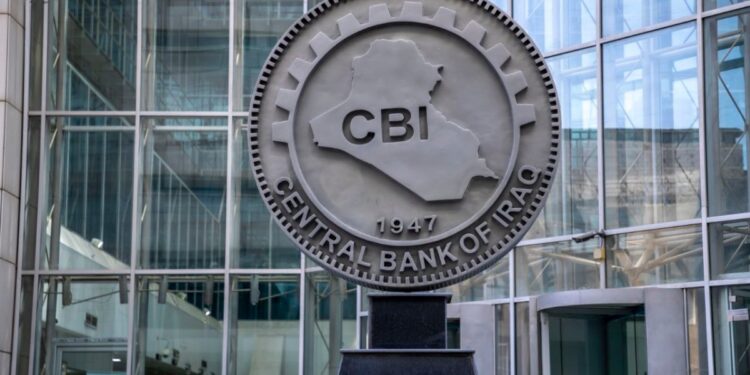Baghdad – In the midst of the accelerating developments in the financial technology world, digital currencies are highlighted as one of the most prominent developments that have occupied global public opinion in a large way, and in Iraq this issue is of particular importance, as these currencies are raised questions about the extent of its law and its potential risks.
The Central Bank of Iraq clarified its position on this matter, by noting that trading in these currencies is a crime in itself, and it is subject to the provisions of the Anti -Money Laundering and Terrorist Financing Law, and other laws, and that dealing with virtual digital currencies involves several risks, especially those related to With electronic piracy and fraud.
Bitcoin, according to the central bank, is a virtual electronic currency that only circulates online, without material presence, and is used for purchase online, and supports payment using bitcoin cards, or may turn into traditional currencies at times.
Two -edged weapon
The economic advisor to the Iraqi Prime Minister, Mazhar Muhammad Saleh, confirms that the cryptocurrency currencies are a double -edged sword, stressing absolutely preventing them in Iraq for many reasons.
Saleh told Al -Jazeera Net that the cryptocurrency currencies are prohibited in Iraq and cannot enter into such “plots” of unknown money and the lack of centralization for them, and as a result of their privacy and the possibility of using them to launder.
He adds that encrypted currencies may be a means of guarantor sometimes and protect from inflation and currency risk fluctuations, but he stressed that the decentralized nature of encrypted currencies is the frightening thing because they are unproductive currencies and are issued at the time of “excessive liberalism”, he said.
With regard to the use of these currencies in money laundering, Saleh says that it is one of the means of money laundering, noting that its very high specificity and its centralization causes money laundering, and at the same time there is no control of a central bank or a cash authority on it.
He affirms that dangerous organizations use them to launder money, considering that they are “frightening” in any case, although some countries have started legislation of some of their legal aspects, but they believe that they are still in the process of prohibitions.
It is noteworthy that the first digital currency, issued in 2009, is Bitcoin, and it appeared as a reaction to the global financial crisis that affected the American banking system in the beginning, then moved to the global financial system, and its founder claimed that it is working away from the central banks, which was what he died Internet pioneers and some criminal networks as a result of the speed of making financial transfers and its distance from government banking control, which makes many financial exchanges not subject to government control and without the complications and restrictions of central banks.
https://www.youtube.com/watch?v=z_qrnsakfui
No economic benefit
The researcher specializing in the financial and banking aspect in Iraq, Mustafa Hantoush, will exclude the possibility of entry to cryptocurrencies into the financial and monetary market in Iraq, given that it does not bear any benefit to the development and economy sectors in the country, he said.
Hantoush says in a comment to Al -Jazeera Net that cryptocurrencies, such as Bitcoin and others, represent a commercial language with technology technology, and have large sites and major countries that worked to organize them with the aim of overcoming sanctions between the major countries in their trade without embarrassing the central banks.
He explained that the punished countries from other countries seek to penetrate these sanctions on their companies through these technologies, but this is international commercial policy, and Iraq is not part of it, indicating that Iraq has no problem, as it depends on oil and receives the dollar in exchange for selling it, and uses it in operations Import, as it is not one of the countries producing a variety of commodities in order to need to use encrypted currencies as an alternative to exporting its products.
On the speculation of these currencies, Hantoush explained that they are not organized in Iraq and no official offices for them, noting that some are speculating through offices in other countries, a non -guaranteed process that may expose its owner to loss or fraud and fraud.
On December 16, the Central Bank of Iraq announced that it does not give a license to trading companies with shares, minerals and encrypted currencies, and that it is continuing to take all legal measures against fake companies, warning of the presence of fake companies for electronic trading in stocks claiming to be licensed by the bank.
Hantoush is excluded from harnessing encrypted currencies within the Iraqi economic sector, indicating that it is a movement of major countries within a large -scale trade, and that Iraq lacks an internal local market with internal and external development for this market.
He says that the Iraq environment does not allow the benefit of such a step. On the contrary, it may turn into a process of speculation and laundering of a large money.
It refers to another negativity that prevents Iraq from adopting cryptocurrencies, which is that it is an inappropriate market and does not have reserves for its currency in international banks.
Hantoush notes that Iraq is working to develop its currency market through real stocks to invest in the foreign and internal market.



